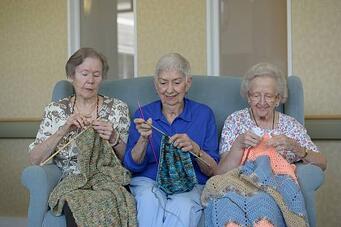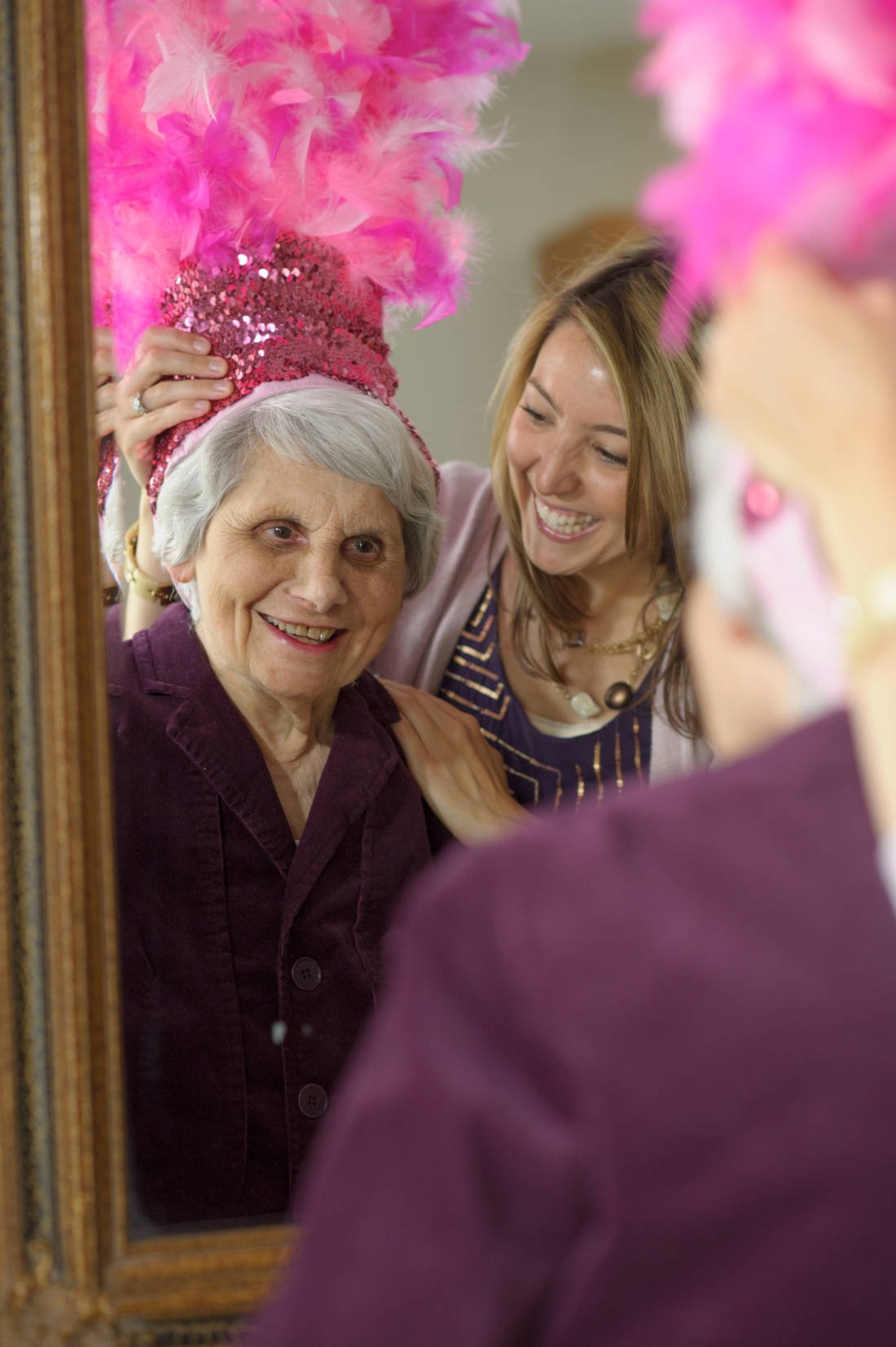The Benefits of Being a Social Senior
assisted living | caregiver tips | Aging & Caregiving
 If you have an aging loved one in your life, it is important to look for ways to help them stay socially active and engaged. Well into their retirement years, life for an aging parent or loved one can become lonely and dull.
If you have an aging loved one in your life, it is important to look for ways to help them stay socially active and engaged. Well into their retirement years, life for an aging parent or loved one can become lonely and dull.
This is especially true after losing a spouse or other relative or experiencing a loss of independence, which is common for many older adults as they age. These changes can lead to a wide range of health concerns, including mental health issues.
A thriving social life can provide your loved one with friendships, accountability, and the support needed to avoid these problems.
Greater Longevity
In a research study cited by Harvard University, researchers found that adults ages 65 and older who participated in social and productive activities had a much lower risk of all causes of death than those who did not.
In fact, the risk was lowered at the same rate as…. exercising! Surprised? Would you have guessed that physical exercise and social interaction could provide the same amazing benefits for seniors?
Activities such as dining out with friends, hosting game nights, and working in the community were all studied in this report.
Less Boredom
After a lifelong career, many seniors look forward to retirement, but several years later, when the reality of not working every day sets in, many older adults find that they are bored. Being active and feeling useful and productive is important for seniors, especially during the later years of their retirement.
An active social life can take the place of a busy work career, helping to ward off feelings of boredom and replace them with meaningful activities, relationships, and tasks that bring feelings of satisfaction and purpose.
Less Problems with Depression
The National Alliance on Mental Illness estimates that 6.5 million American seniors struggle with depression. As older adults become more and more dependent on others to help them with activities of daily life, they are no longer able to enjoy the same activities they once loved. With a realization and understanding of this loss of independence, depression can quickly set in. When seniors become socially isolated, problems can worsen significantly. An active social life can help your aging loved one stay connected to others and prevent feelings of depression and withdrawal.
Mental Stimulation
Most social activities are mentally stimulating. A senior may join a group that plays cards weekly, or perhaps participate in a book club or crafting group. Regardless of the activity choice, the end result is often the ability to learn and master a new skill (or sharpen existing skills) which brings great mental stimulation. Feeding the brain is the key to keeping it sharp throughout the aging process, so in this way social activities provide a double benefit.
Improved Connection
By staying socially active, seniors can feel more connected to their community. That connection can provide a strong sense of purpose; a schedule, a reason to get up and get dressed in the morning, and relationships that make them feel wanted. These are all invaluable benefits that help to maintain overall wellness. Encouraging your aging loved one to become a social senior means encouraging them to take care of themselves and make their health a priority.
Key Takeaways
- Seniors benefit from social activities to keep their mind, body and emotions healthy.
- Being social may help seniors live longer.
- Social activities can help with a wide range of health concerns, including preventing depression.
- Social activities help seniors feel connected to others and their community.
About Marissa Salvesen
My journey into the world of senior living began when I started working for United Methodist Homes in 2010. Starting as an Activities Director at one of our-winning assisted and independent living communities and then transitioning to Marketing and Promotions Manager for UMH, I now work as the Manager of Mission Development, fostering the Mission and Values of our organization. I love sharing stories about the many ways we build meaningful relationships and enrich the lives of those we serve, and am proud to be part of building UMH’s 140-year legacy of caring. Wondering what makes our communities such special places to live and work? Connect with me and find out!

Our Blog is a 2016 Platinum Generations Award Winner! The Generations Award is an annual international competition for excellence in senior marketing recognizing professionals who have communicated to the 50+ Mature Markets.




